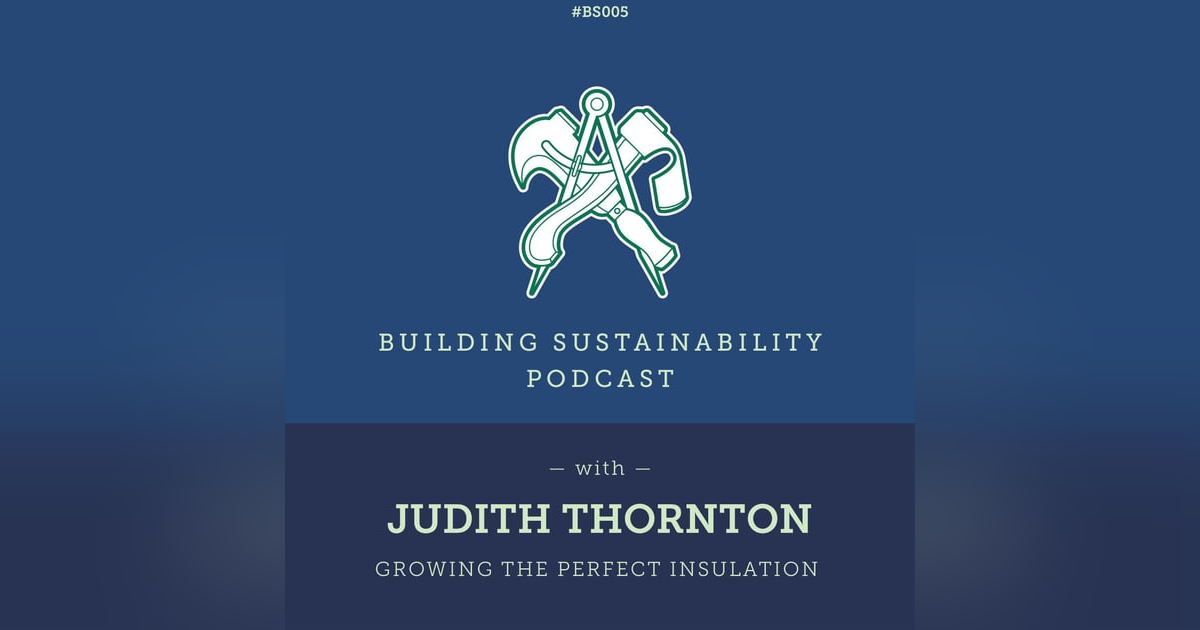Growing the perfect insulation - Judith Thornton - BS005

This month sees us talking to Judith Thornton from Aberystwyth University.
Judith is looking at alternative natural insulators that can be grown. She has a particular interest in how we stop biodegradable materials biodegrading.
Judith was just involved in building the world's first miscanthus insulated house. The Miscanthus was baled up like a regular straw bale and the house was build in the same way that a regular straw bale house would be.
Why does she want to improve on current straw bale materials?
- She is looking for plants that are perennials, which are therefore better for soil quality and require less intensive farming.
- She is looking for plants that have a higher resistance to biodegrading should there be a moisture issue in a house, or freak plumbing accident.
Support this podcast:
https://www.patreon.com/buildingsustainability
Join us for informal conversations surrounding beer, film, politics and philosophy.
Listen on: Apple Podcasts Spotify
Support the showConnect with me:
IG - @jeffreythenaturalbuilder
Twitter - @JNaturalBuilder
Facebook - Jeffreythenaturalbuilder
LinkedIn - Jeffreythenaturalbuilder
Support this podcast - https://www.patreon.com/buildingsustainability
Hosted on Acast. See acast.com/privacy for more information.

Judith Thornton
Background
Judith Thornton is Low Carbon Manager within the Beacon project. She works with companies interested in developing environmental building products, particularly those containing plant materials. Judith has a longstanding interest in natural building materials. She taught on the Architecture and Sustainability MSc courses at the Centre for Alternative Technology for many years and also spent time in Leeds University (Civil Engineering), University of Padova (Civil, Environmental and Architectural Engineering) and Cardiff University (Welsh School of Architecture). Judith was a water and sewage consultant specialising in small scale treatment systems. She co-authored the AECB Water Efficiency Standard along with Nick Grant and also wrote “Choosing Ecological Water Supply and Treatment”. She is also qualified in Life Cycle Assessment (LCA) and is keen to ensure that the environmental benefits of scientific advances within biorefining are properly quantified.
Research Interests
Construction materials used to be entirely sourced from the local environment, and many were based on plant materials. Whilst bio-based materials continue to be used for many applications (e.g. timber), many building components are now produced from fossil-fuels (e.g. insulation materials), or from materials with high energy costs (e.g. cement). The life cycle energy costs of modern buildings continue to be dominated by energy in use as opposed to the embodied energy in construction; it is vital to improve standards of insulation and airtightness in both new build and the exis…
Read More









